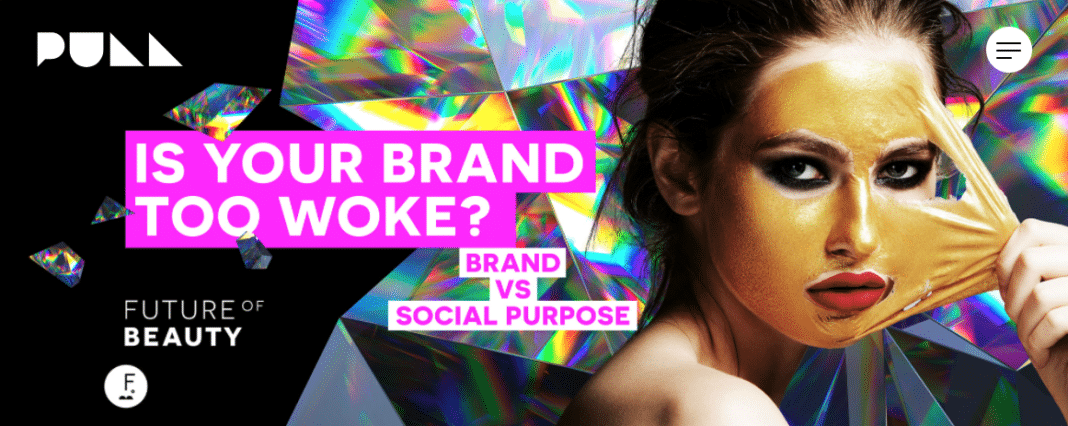New research commissioned by The Pull Agency reveals that 68% of consumers are uneasy about the ways in which health and beauty brands promote ‘woke’ causes. 41% are beginning to notice a rise in the prevalence of ‘woke-washing’, whereby brands ‘fake their interest in social issues’ such as Black Lives Matter; the same number have observed greenwashing in the sector.
Where CSR is concerned, the nationally representative survey sample of 2,000 UK consumers found that rather than an ‘in vogue focus on brand purpose’ – such as showing support for climate change, LGBTQ+ rights or diversity and inclusion, simply because others are – the majority (58%) expect health and beauty brands to simply be ‘ethical corporate citizens’; to pay taxes, treat people fairly, show respect for the environment and not use any of this as a ‘PR opportunity’.
According to one in four respondents, woke-washing brands are ‘inauthentic’; one in seven said they deliberately avoid companies which they see displaying this behaviour.
The report – Is your brand too woke? Brand vs Purpose – highlighted that although consumers do wish for health and beauty brands to take a stance on key societal issues, it must not be for appearance. More than half (58%) said they’d like to see serious support for climate change, 56% said female body positivity was a priority and 52% cited diversity and inclusion as their main concern.
The groups most commonly mentioned in terms of underrepresentation were disabled, older and larger-sized people. 43% most want to see ‘advertising that shows a realistic set of models or actors to reflect real users of the brand’. Next, for 40% of women, was ‘advertising that uses a range of models/actors such as different ages, sizes, gender, ethnicities or disabilities to be inclusive’. Overall, consumer feedback highlighted disabled as the group ‘least likely to be accurately represented in ads’, with only 21% thinking that brands were getting this right.
No matter how well intended their chosen social cause, if they fall short of people’s expectations … a campaign could turn from worthy to inauthentic woke-washing in the blink of an eye
Kathrin Rodriguez-Bruessau, head of brand strategy at The Pull Agency, comments: “Personal representation remains a huge issue for health and beauty advertising, but the growth in customization and improvements in ‘try-on’ technology are bringing the future ever closer. Soon, it could be entirely possible that the people we see in ads will be ourselves.”
Brand purpose, as a term, was only familiar to 22% of those asked, while a further 37% had heard of it but were unsure about what it involves.: “While the marketing world would have us believe that a grandiose brand social purpose is paramount, consumers don’t seem to care as much or really understand the concept. According to most people, the first step is to just get the basics right and be a decent corporate citizen.
“Trying to be more than an ethical business actually carries risks,” says Rodriguez-Bruessau. “Several healthcare and beauty brands have got in trouble for perceived woke-washing and superficial attempts at brand activism. People are getting much smarter at identifying what’s real and what’s not and clearly irritated by inauthentic looking claims.”
She adds that by no means is The Pull Agency’s research suggesting that brands shouldn’t promote social purpose, but ‘if they decide it’s the right path to take, they must consider how it’s reflected in their ads, taking into account the consumer viewpoint’.
“It is also important to take the time to check their company’s past and current code of conduct across all their procedures – including a quick check on any brand ambassadors. No matter how well intended their chosen social cause, if they fall short of people’s expectations on the basics it’s evident that news around a campaign could turn from worthy to inauthentic woke-washing in the blink of an eye.”











